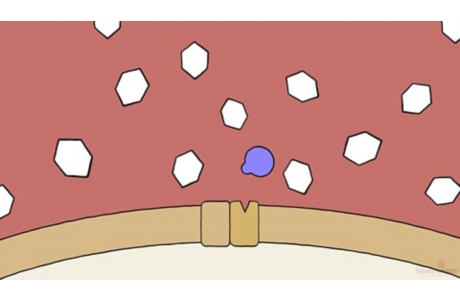Type 2 Diabetes: Can You Cure It?
Topic Overview
Can you “reverse” type 2 diabetes? Can you cure it?
Diabetes can go into remission. When diabetes is in remission, you have no signs or symptoms of it. But your risk of relapse is higher than normal.footnote 1 That’s why you make the same daily healthy choices that you do for active type 2 diabetes.
Is there a cure for diabetes?
There is no known cure for type 2 diabetes. But it can be controlled. And in some cases, it goes into remission.
Keys to control
For some people, a diabetes-healthy lifestyle is enough to control their blood sugar levels. That means losing weight if you are overweight, eating healthy foods, and being more active. But most people with type 2 diabetes also need to take one or more medicines or insulin.
What is remission?
Of those people who don’t need diabetes medicine, some find that their diabetes does “reverse” with weight control, diabetes-healthy eating, and exercise. Their bodies are still able to make and use insulin, and their blood sugar levels go back to normal. Their diabetes is in remission.
- “Complete remission” is 1 year or more of normal A1c and fasting glucose levels without using diabetes medicine. When you have complete remission, you still get tested for high blood sugar, high blood pressure, high cholesterol, and kidney and eye problems. You do regular foot checks.footnote 1
- “Prolonged remission” is 5 years or more of normal A1c and blood sugar levels without using diabetes medicine. You might have lab tests less often. But your doctor will still check on any heart, eye, foot, or other health problems you have had from diabetes, even if they are better than before.footnote 1
Remission is most likely in the early stage of diabetes or after a big weight loss. It can also happen after bariatric surgery for weight loss, which can trigger healthy changes in the body’s insulin system.
Remission is less likely in the later stages of diabetes, because the body may slowly lose its ability to make insulin over time.
Whether your diabetes is under control or in remission, the keys to keeping high blood sugar down are weight control, exercise, and a diabetes-healthy diet.
Can your diabetes go into remission?
There’s no way to know in advance if your body can “reverse” your diabetes. It happens for some people and not for others, despite the same diet, exercise, weight loss, or even bariatric surgery. Experts don’t fully understand why.
Control your diabetes
Your goal is to do whatever it takes to keep your blood sugar in your target range. You may go into remission, or you may not. Keep these guidelines in mind.
- Eat a mix of foods. Carbohydrate raises your blood sugar higher and more quickly than any other nutrient. Eat foods with protein, fat, and fiber—they don’t raise your blood sugar as much.
- Control your carbs. To help take charge of your diabetes, manage how much and what type of carbohydrate you eat. Spread carbs throughout your day.
- Stay active. When you are active, your body uses sugar. You can use activity to help lower your blood sugar and manage your diabetes. Exercise also can help you lose weight and stay at a healthy weight.
- Move more. If you use medicine, you may find you need less of it when you increase your exercise. Over time, exercise helps some people stop using medicine.
- Know your A1c. The A1c test gives you your average blood sugar level over the few months before the test. Generally, A1c is checked at least 2 times a year. Talk with your doctor about how often you should have this test.
- Work with your doctor. Some risks related to diabetes, such as heart disease, are still higher than normal even when your blood sugar is controlled. So work closely with your doctor, and go to all of your appointments.
Current as of: April 16, 2019
Author: Healthwise Staff
Medical Review:E. Gregory Thompson MD – Internal Medicine & Adam Husney MD – Family Medicine & Kathleen Romito MD – Family Medicine & David C.W. Lau MD, PhD, FRCPC – Endocrinology
This information does not replace the advice of a doctor. Healthwise, Incorporated, disclaims any warranty or liability for your use of this information. Your use of this information means that you agree to the Terms of Use. Learn how we develop our content.


